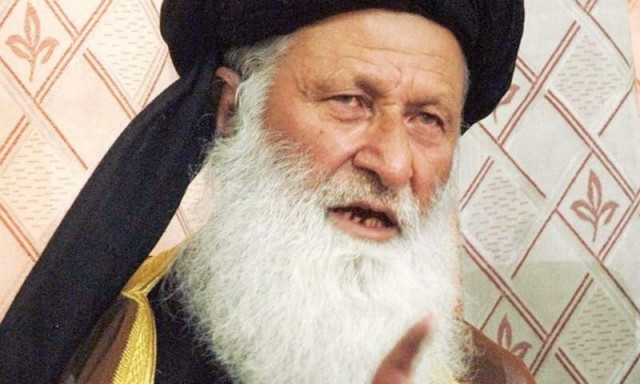Military courts: Govt must seek CII’s opinion, says Sherani
Council says the president’s power to pardon a convict is ‘un-Islamic’

Maulana Sherani. PHOTO: FILE
“According to the Islamic law, no person or state has the authority to pardon a convict, particularly in cases of Qisas and Hudood,” CII Chairman Maulana Muhammad Khan Sherani told journalists after a marathon meeting of the council on Tuesday.
The session was convened to discuss the status of CII and its constitutional powers. It coincided with the approval of the 21 Constitutional Amendment Bill 2015 and the Pakistan Army (Amendment) Bill 2015 by both houses of parliament.
Maulana Sherani said it was mandatory for the government to seek CII’s opinion before or after introducing a fresh law. He added that the government should review the powers of the president and provincial governors to pardon a convict because such powers were un-Islamic.
The CII feels that the oath of finality of Prophet Muhammad (PBUH) should be made mandatory for the ministers, governors, assembly speakers, heads of the armed forces and other offices, he said.
The CII members recommended that the government or any individual be bound to prove that a bill tabled in parliament is in accordance with teachings of the Holy Quran and Sunnah of the Prophet (PBUH). They further recommended that the CII has the right to suggest amendments in any law, if it deems necessary. The CII also has the right to give its opinion even if any amendment is not referred to the council by any assembly.
Published in The Express Tribune, January 7th, 2014.



















COMMENTS
Comments are moderated and generally will be posted if they are on-topic and not abusive.
For more information, please see our Comments FAQ